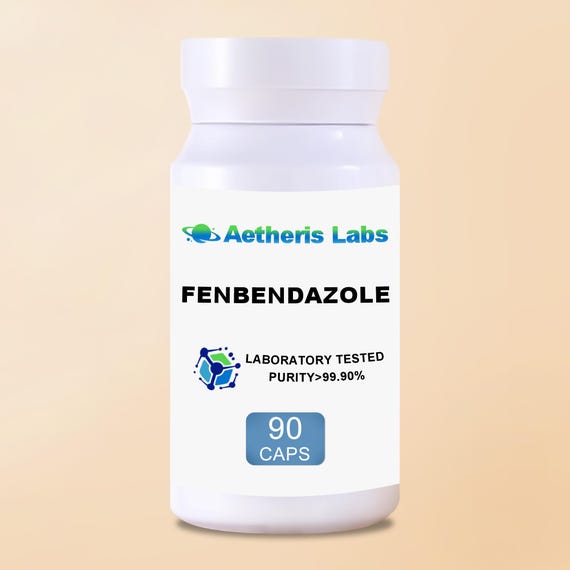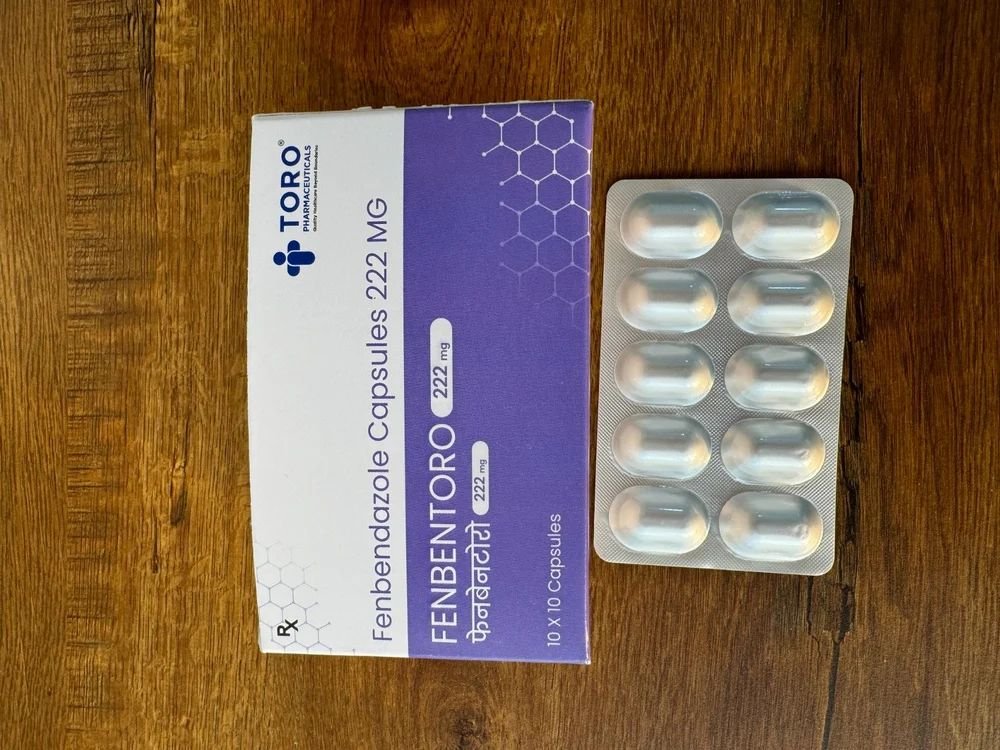Exploring the Devices Behind Fenbendazole and Its Influence On Pet Health
Fenbendazole is an extensively utilized anthelmintic known for its performance versus numerous parasites. Its primary mechanism includes the inhibition of microtubule formation, which interferes with crucial procedures in these virus. Past its antiparasitic homes, fenbendazole additionally appears to boost immune reactions and has anti-inflammatory advantages. Comprehending these complex effects might reveal new applications for animal wellness. Questions stay regarding its complete potential and safety and security account.
The Pharmacokinetics of Fenbendazole
The pharmacokinetics of fenbendazole, a commonly utilized anthelmintic in vet medicine, entails the research of its absorption, circulation, metabolism, and excretion within animal systems. After administration, fenbendazole is quickly soaked up from the intestinal system, with peak plasma focus happening within hours. Its circulation is affected by aspects such as tissue binding and lipid solubility, enabling it to permeate different tissues properly. The medication undergoes substantial metabolic rate primarily in the liver, where it is exchanged active and non-active metabolites. These metabolites contribute in the medicine's general efficiency and safety and security profile. Excretion takes place mostly through feces, with a smaller percentage gotten rid of via urine. The half-life of fenbendazole differs amongst varieties, which impacts dosing routines. Recognizing these pharmacokinetic residential properties is necessary for optimizing its healing use and making sure efficient parasite control in vet techniques.
Mechanisms of Activity Against Parasites
Fenbendazole applies its antiparasitic results mostly through the inhibition of microtubule formation in bloodsuckers. This disruption affects their architectural integrity and mobile features, bring about impaired basal metabolism. Consequently, the medicine efficiently endangers the survival and reproduction of various parasitic organisms.
Restraint of Microtubule Formation
Inhibition of microtubule development stands for a vital mechanism where specific anthelmintic agents, consisting of fenbendazole, exert their results on parasites. Fenbendazole binds to tubulin, a healthy protein that forms microtubules, interfering with the polymerization process necessary for microtubule assembly. This disruption hinders vital cellular features, consisting of mitosis, intracellular transport, and architectural honesty. As microtubules play an essential role in maintaining the shape and function of parasitic cells, their inhibition results in cell cycle arrest and eventual death of the parasite. This system is specifically effective against nematodes, as their reliance on microtubules for mobility and nutrient absorption makes them vulnerable to fenbendazole. As a result, the restraint of microtubule development is an essential aspect of fenbendazole's therapeutic efficacy in vet medicine.
Disruption of Basal Metabolism
Interfering with energy metabolism is another vital mechanism by which fenbendazole targets parasitic organisms. This anthelmintic changes the energy production paths within bloodsuckers, mostly affecting their capability to create adenosine triphosphate (ATP) By hindering sugar uptake and interfering with mitochondrial feature, fenbendazole limitations the power sources essential for the survival and reproduction of these organisms. Because of this, bloodsuckers end up being significantly at risk to ecological stress and anxieties and immune actions. Additionally, the interference in basal metabolism not only affects the bloodsuckers directly but additionally decreases their capability to absorb nutrients, even more impairing their development. Generally, the disruption of power metabolism represents a fundamental facet of fenbendazole's effectiveness against numerous parasitic infections, contributing greatly to improved animal health and wellness outcomes
Prospective Negative Effects and Security Profile
The possible negative effects and safety and security account of fenbendazole warrant cautious factor to consider, especially in vet applications. While usually considered safe, some animals may experience adverse reactions, consisting of stomach disruptions such as vomiting and looseness of the bowels. In addition, neurological symptoms, although unusual, have actually been reported in delicate people, highlighting the need for tracking throughout treatment.

Fenbendazole's safety in different types, consisting of dogs and pet cats, has actually been recorded, yet dosage and period of treatment need to be carefully taken care of to decrease threats. Expectant or breast feeding animals may likewise require special attention, as the impacts on developing fetuses or nursing spawn are not fully comprehended.
Normal vet consultations can assist alleviate possible side effects and guarantee the medication is administered appropriately. While fenbendazole is an effective anthelmintic representative, alertness regarding its side effects is important for maintaining pet health and wellness.
Fenbendazole's Influence on Immune Function
Fenbendazole has actually been kept in mind for its possible to regulate immune system reactions in animals. Its anti-inflammatory homes may add to boosted immune feature, supplying a useful site dual benefit in managing wellness (222 mg). Recognizing these impacts is necessary for reviewing fenbendazole's function in veterinary medicine
Body Immune System Modulation

Anti-inflammatory Features
Anti-inflammatory effects represent a significant aspect of fenbendazole's influence on immune function. Research study suggests that fenbendazole may reduce the manufacturing of pro-inflammatory cytokines, which are crucial in moderating inflammatory feedbacks. By modulating these cytokines, fenbendazole can possibly minimize inflammation-related problems in pets. This anti-inflammatory action not just help in handling signs connected with different diseases but likewise boosts general body immune system effectiveness. In addition, its ability to advertise a well balanced immune action helps prevent extreme inflammatory damages, which can lead to persistent health concerns. Fenbendazole's function in inflammation management emphasizes its value in vet medicine, giving a twin benefit of antiparasitic activity and immune system support for pet health and wellness.
Applications Beyond Standard Parasitic Infections
While primarily identified for its efficiency versus numerous parasitic infections, fenbendazole has amassed interest for potential applications yet conventional extent. Recent researches suggest that fenbendazole might have beneficial impacts on mobile health and wellness Look At This and immune feedback, making it an intriguing candidate for taking care of other health and wellness conditions in animals. Its reported anti-inflammatory residential properties might give relief for animals experiencing from chronic inflammatory illness. Furthermore, some research study indicates that fenbendazole can play a role in supporting the general health of animals by improving vitamins and mineral absorption and intestinal wellness. Moreover, its potential as an accessory treatment in cancer cells treatment has stimulated passion, as initial searchings for recommend it could hinder lump cell development in certain contexts. These varied applications highlight fenbendazole's convenience, urging additional expedition into its diverse advantages for pet health and wellness past its traditional use as a deworming agent.
Future Research Directions and Implications for Pet Wellness
The expedition of fenbendazole's prospective applications has actually opened up brand-new opportunities for research intended at boosting pet health and wellness. Future research studies could concentrate on its performance versus a more comprehensive variety of microorganisms, including bacteria and infections, consequently broadening its role in veterinary medication. The ramifications of fenbendazole's mechanisms, such as its effect on immune inflection, warrant even more examination to recognize how it can bolster overall health in numerous types.
Additionally, study might explore perfect does and formulations to make best use of effectiveness while minimizing possible side impacts. Investigating fenbendazole's synergistic results with various other medicines could result in extra efficient therapy protocols. Longitudinal studies reviewing long-lasting results in animals treated with fenbendazole could provide important insights into its safety and efficiency. In general, the ongoing exploration of fenbendazole uses promising capacity have a peek here to improve pet health and wellness, necessitating a collective approach amongst researchers, veterinarians, and pharmaceutical programmers to facilitate improvements around.
Frequently Asked Inquiries
Can Fenbendazole Be Used in Animals for Parasite Avoidance?
The inquiry of whether fenbendazole can be made use of in livestock for parasite avoidance is appropriate, as manufacturers seek effective treatments (fenbendazole capsules). Research indicates it might give benefits, however proper guidelines and vet guidance are important for safe use
What Is the Advised Dosage of Fenbendazole for Different Animals?

Exist Any Kind Of Recognized Medicine Interactions With Fenbendazole?
Current expertise shows that fenbendazole might engage with certain drugs, possibly impacting their efficiency or metabolic rate. Vet experts suggest seeking advice from a veterinarian to analyze individual animal cases and determine any type of possible interactions prior to administration.
How Does Fenbendazole Contrast to Various Other Antiparasitic Medicines?
Fenbendazole is frequently compared to various other antiparasitic medicines based upon effectiveness, spectrum of task, and security accounts. It is preferred for its effectiveness versus a vast array of bloodsuckers while normally exhibiting marginal negative effects in pets.
Is Fenbendazole Effective Versus Viral or Bacterial Infections in Animals?
The effectiveness of fenbendazole against viral or microbial infections in animals continues to be unproven. Research largely focuses on its antiparasitic homes, with limited proof sustaining any duty in dealing with non-parasitic infections in veterinary medicine.